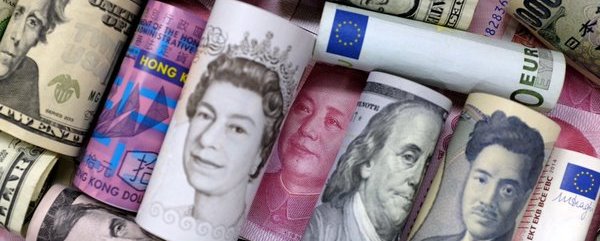Washington-based Global Financial Integrity releases startling report.
Corrupt individuals including politicians and businessmen, criminals, and tax evaders have moved US$ 19.96 billion in dirty money out of Sri Lanka in the decade up to 2013, an organisation that tracks the movement of shady money has revealed.
The equivalent of Rs. 2.88 trillion has been illegally taken out of the country in the 10 years from 2004 to 2013, data reveal. This includes money illegally earned through corruption. The estimate is conservative as cash deals are not easily tracked. Some illegal transfers are not noted in the balance of payments because of wire transfers by banks and shady money changers, a US study reveals.
Illicit outflows were highest in 2011, when US$ 4.6 billion had been spirited away. The outflow nearly doubled compared with 2009, to US$ 2.63 billion in 2010, the year after the war against Tamil terrorism ended. The year 2009 was also the period after the global financial
crisis, and US$ 1.45 billion of illegal money exited Sri Lanka. US$ 1.48 billion in illicit money was taken out of the country during 2004, when Ranil Wickremesinghe served as prime minister for the second time until April that year.
Mahinda Rajapaksa assumed office as Prime Minister in April, 2004. In 2005, US$ 1.38 billion flowed out of Sri Lanka, during Rajapaksa’s time as PM, which lasted until November that year. In November 2005, Ratnasiri Wickremanayaka became PM and in April 2010, D. M Jayaratne assumed the mantle.
The Washington-based Global Financial Integrity, an advisory firm, which tracks and analyses illicit money, says illegal capital movements are also tied to dodgy trade invoicing – or trade-related money-laundering. This involves underreporting of the value of business deals on invoices submitted to customs. Then there is money laundering, the process of disguising cash piles generated from crime.
Sri Lanka’s illicit money outflows are worse than that of notorious drug haven Colombia at US$ 14.74 billion, and several millions less than that of Panama, data show.
Sri Lanka loses more than US$ 17 billion through dodgy trade invoicing (except services trade) to customs, data gathered by Global Financial Integrity, reveal. This means overinvoicing or underinvoicing to evade tax. Suspect trade invoicing, where prices, quantity or quality are deliberately manipulated on goods and services, has been identified as a major channel for cash transfers overseas.
Global Financial Integrity researchers Dev Kar and Joseph Spanjers observe that by comparing trade misinvoicing figures to total trade in drug-producing and drug-trafficking states, there are indications that drug traffickers may be using trade misinvoicing to shift ill-gotten gains.
Such trade misinvoicing practices which continue under the purview of finance ministers and central bankers who are incapable of stemming illegal outflows, result in billions of lost tax revenue to governments. Many companies in Sri Lanka are suspected to be engaged in this activity and park their millions overseas through leading global banks. They also benefit through large-scale concessions granted by finance ministers.
China, with which Sri Lanka does booming business, is estimated to have lost US$ 233.5 billion on tax revenue as of 2006, due to trade mispricing.
Sino-Sri Lanka bilateral trade amounted to US$ 4.56 billion in 2015, according to data cited by Yi Xianliang, China’s envoy to Sri Lanka. Trade between January and September 2014 was US$ 2.73 billion, according to the Ministry of Commerce in China. Trade is heavily weighted in favour of China despite the rhetoric that promises benefits to Sri Lanka through the ‘maritime silk road’ and the like.
China is the world’s largest exporter of illegal money based on outflows in the 10 years to 2013. Illegal money outflows from the communist state topped US$ 1.39 trillion, Global Financial Integrity, reports.
Of 149 countries, Sri Lanka ranks 53rd for illegal money outflows, with an average of US$ 1.99 billion a year pilfered from the countryin the 10 years up to 2013.
By Kapila Bandara
Sunday Times
